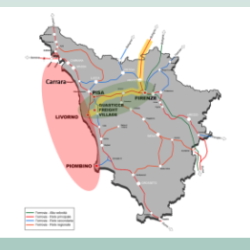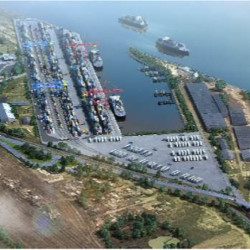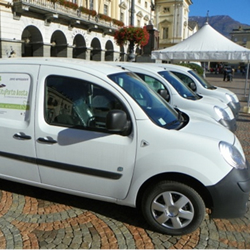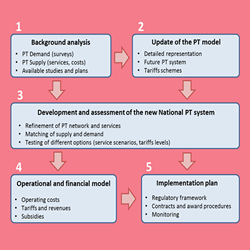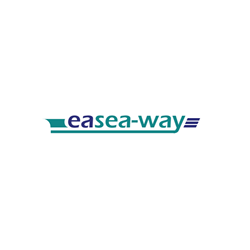- All
- African projects
- assessment
- assessment selected projects
- Assessment selected projects 2
- Assessment selected projects 3
- Assessment selected projects 4
- ASTRA
- Cost Benefit Analysis
- Electric mobility and ITS
- MOMOS
- planning
- planning selected projects
- planning selected projects 2
- planning selected projects 3
- planning selected projects 4
- planning selected projects 5
- projects
- Railways projects
- research
- research selected projects
- research selected projects 2
- research selected projects 3
- studies
- studies selected projects 1
- studies selected projects 2
- studies selected projects 3
- studies selected projects 4
- studies selected projects 5
- TRTingegneria
- TRUST
- urban mobility
- Improving the Fuel Economy Policies Implementation Tool (FEPIT) The FEPIT (Fuel Economy Policies Implementation Tool) is used by the International Energy Agency (IEA) for estimating the impact of some policy measures on the average fuel economy of newly registered cars. This tool is expected to support decisions to implement policy schemes aimed at getting the Global Fuel Economy Initiative (GFEI) target of 4.2 lge/100 km in the year 2030. The model allows to analyse the impacts of several policies aimed at reducing the level of fuel duties taking in consideration the specification of the vehicle fleet of a particular country and of different scenarios. This study provides an updated version of the FEPIT model which contains new parameters coming from a more rigorous methodology. In this version a user guide has also been produced.
- Ex-post evaluation of the road transport social legislation and its enforcement In two distinct assignments, TRT has focussed on the EU legislation currently in force in the area of commercial road freight transport sector. Both entails an ex-post evaluation of the relevant EU norms governing: access to the occupation (Regulation 1071/2009), access to the international road haulage market (Regulation 1072/2009), social aspects (driving times, rest periods and working time) of the road transport sector including enforcement mechanisms across the EU Member States (Regulation 561/2006 and Directives 2002/15/EC and 2006/22/EC). In both assignment an assessment is carried out with respect to the actual performance of these legislative interventions in terms of achieving their objectives, as well as the overall impacts (both intended and unintended) on societal, economic and environmental issues and possible requirements for future action.
- Study on Urban Mobility – Assessing and improving the accessibility of urban areas This study in urban accessibility has been designed in order to advance the understanding of urban accessibility in order to improve the functioning of urban areas and make the transport system in Europe’s urban areas more efficient. The study, carried out by Ricardo and TRT, comprises various tasks. TRT has played a major role in estimating European urban road congestion costs and comparing relative efficiency of urban passenger transport modes. The welfare economic approach is used to define a measure of congestion cost in terms of deadweight loss in cities. The estimation of congestion costs per year (per capita and at urban level) is based on available congestion indexes for a sample of cities and other relevant information (population, value of time, share of car mode split, car occupancy factor). Delay congestion costs were also estimated. The relative performance of different urban transport modes was assessed in relation to capacity; energy use; CO2 emissions and user cost. The above metrics were assessed for private modes (car and motorcycle) and public transport modes (bus and rail). Also, metrics was assessed for metropolitan areas and medium cities, and for peak (or congested) traffic and off-peak (or uncongested) traffic.
- Cost-benefit analyis for the railways links of the Port of Livorno (Italy) The project concerns the improvement of multimodal transport operations at the nodes of the port of Livorno and the Interport of Guasticce (Italy), through specific interventions on rail routes (works for about 200 million Euros). TRT has taken care of the traffic forecasts by means of the European model TRUST. It has analyzed the economic aspects of the project, assessing their financial and economic feasibility (cost-benefit analysis) as well as the socio-economic impacts.
- Advisory support in preparing the Application to CEF 2014, to finance the project “Galaţi multimodal platform” The assistance provided support in preparing the application to 2014 CEF (Connecting Europe Facility) Transport Calls for Proposals, with the aim to finance the project “Galaţi multimodal platform”. The service mainly consisted in the three phases: Phase 1: kick-off meeting and start-up of activities: data collection and preparation of the socio-economic impact assessment; Phase 2: elaboration of the financing application and related annexes: identification of project budget, financial analysis (including Cost Benefit Analysis), preparation of the financing request, preparation of administrative documentation and statement, electronic submission of application file; Phase 3: assistance in the period between submission of the application file and decision of the competent authority on project approval.
- BENEFIT – Business Models for Enhancing Funding and Enabling Financing of Infrastructure In Transport BENEFIT developed an innovative approach by analysing funding schemes within an inter-related system and depending on their Business Model (described by a governance model). These were key elements in the transport infrastructure provision, operation and maintenance and the funding and financing schemes were analysed in this respect. This envisaging the transferability of findings with respect to the lessons learned, the limitations and the impact of the financial and economic crisis. The BENEFIT project took stock of over twenty years of EC’s funded, national and international research and received direct inputs from the OMEGA Centre and COST Action TU1001. BENEFIT undertook an ex-ante analysis and assessment of transport investments and related funding schemes, including innovative procurements. The BENEFIT project looked at infrastructure project delivery performance. Among various infrastructure project outcomes, it focused on four which are at the heart of the analysis of all major project stakeholders and which influence either directly or indirectly all other anticipated outcomes when a specific project is considered for financing (public or other): cost and time to (construction) completion and actual versus forecast traffic and revenues. The BENEFIT project investigated and researched the conditions and factors leading to the achievement of the above four outcomes distinctively from one another and remained stakeholder neutral, as it did not assume the perspective of any project participant. A key conclusion of the BENEFIT project was that transport infrastructure projects performance is rather independent from the financing scheme, as the conditions of improved performance were mostly related to the actual project characteristics and the competences of the involved parties, including in all cases the competence of the public contracting authority and the level of sharing of responsibility (risks) among the involved parties, also based on their ability to manage them. While, the implementation context (i.e., macro-economic conditions, country competitiveness, supporting institutions) was beyond the control of project decision-makers (i.e., exogenous to the project), and might have significantly influenced the project performance, there were other actionable factors (i.e., endogenous to the project) that might have been influenced by them. Each transport infrastructure mode was influenced differently by its implementation context and different combination of factors contributed in each case to achieving the respective target outcomes. The difference was primarily in the ability to fully endorse factors identified to support the achievement of the project outcomes. On the basis of selected indicators and synthesis of findings, the BENEFIT project developed a rating system describing the likelihood of a project to achieve at a certain point of its life cycle the expected targets (i.e., cost and time to (construction) completion and actual versus forecast traffic and revenues). Within the activities of the study, TRT led the research of the consortium to identify lessons learned.
- Technical support for the development of electric mobility in the Aosta Valley Region (Italy) The group of companies consisting of TRT, CEI and the local expert Marcello Dondeynaz was selected by Finaosta for the drafting of the development plan of the Electric Mobility in the Aosta Valley region in Italy. The activity consisted in three phases: First Phase – backgroung analysis of the European and national frameworks (regulatory issues, analysis of pilots and projects in mountainous and tourist areas); Second Phase – definition of the development scenarios for electric mobility, recognizing the different market segments and their needs; Third Phase – development of scenarios and quantification of key variables (supply, demand, financial resources) as the first step for the preparation of the Regional Electric Mobility Plan.
- Development of the National Public Transport System for the Hashemite Kingdom of Jordan TRT, already responsible along with German partner PTV Transport Consult for the preparation of the Jordan National Transport Strategy, has been commissioned for the study to develop and improve the public transport system of Jordan. The project includes: surveys on site focussed on transport demand, supply, costs borne by local operators, fare schemes and subsidies, the definition of a programme for intercity, regional and urban services of the whole Kingdom, a proposal to reform the whole sector, including provision of subsidies, contracts and award procedures. The development of the plan is supported by the multimodal transport model, based on the VISUM software.
- Technical assistance for the implementation of the EA SEA-WAY (Europe Adriatic Sea Way) project, funded under the IPA Adriatic cross-border cooperation programme The general objective of the EA SEA – WAY project is to improve of the accessibility and the mobility of passengers across the Adriatic area and its hinterland, through the development of new cross-border sustainable and integrated transport services and the improvement of physical infrastructures related to those new services. TRT is involved in the project by supporting the Client in relation to the following activities: coordination of the cross-border institutional committee; participation of experts in the thematic cross-border and local working groups; drafting of a cross-border and a local action plans for the project thematic priorities; designing of an Adriatic strategy aiming at developing sustainable passenger transport.




